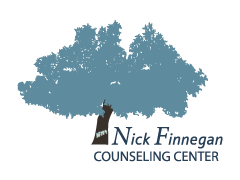Getting Through the Storm: Addiction
“Addiction” is often used to refer to abuse of substances, but can also include other behaviors such as: gambling, eating, video games, sexual obsessions, working, religiosity, codependency patterns, etc. Some experts define it as, “Anything one does excessively for the purpose of avoiding a thought or emotion.” Addiction is a cycle of use, recovery, and relapse and involves dependence in three key areas: physiological, psychological, and emotional. To break the cycle, all three of these areas must be addressed.
The physiological component of addiction is explained well through a concept often heard in recovery programs: “It is not the tenth drink that gets a person drunk, it is the first one.” Once a person with an addiction consumes the substance, his or her brain begins to function in a way very different than a non-addicted person’s. Once this brain pattern is started, no amount of willpower or intention can alter it. Focus needs to remain on the decision, motivation and confidence to not take that first drink.
People who struggle with addiction repeatedly get stuck in the cycle of addiction despite experiencing and re-experiencing the negative consequences. Breaking the addiction cycle requires both an identification of the addiction as a problem and a high level of motivation and confidence that abstinence is attainable. Borrowing again from recovery programs, there is an acronym often used to empower people to address fears—F.E.A.R: Face Everything And Recover -OR- Forget Everything And Run. No matter the addiction, recovery begins when you stop running. Confidence is improved through facing fears and challenging feelings of inadequacy and isolation. This is one of the reasons why a person CANNOT be shamed into sobriety. Shame and separateness feed the cycle of addiction while a sense of value and connectedness break it.
12-step programs, support groups and individual/family psychotherapy focus primarily on healing the psychological and emotional components while simultaneously educating participants in how the brain and body are affected by addiction. Psychologically, addiction progresses from a substance or experience being used to calm mild emotional discomfort to an attempt at control of obsessive thoughts and compulsive behaviors focused on the access and use of a substance. Treatment aims to identify and address obsessive thinking patterns and the emotional discomfort that precipitates them. Maintaining recovery requires an honest and thorough exploration of emotions and a willingness to face fears surrounding feelings of shame, inadequacy, and isolation.
By Sherry Yingling, MA, LMFT, LPC
NFCC’s former Lead Clinician
